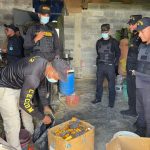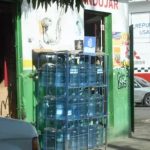In 2014, 124 electric vehicles were imported; in 2020 the figure increased to 1,905

Given the increase in the use of these vehicles, the Superintendency of Electricity highlighted the advances in the regulation of electric mobility in the Dominican Republic.
The importation of these cars has increased in recent years, going from 124 imported vehicles in 2014 to 1,905 in 2020.
The Superintendency of Electricity (SIE) pointed out that a regulatory framework is required that encourages and regulates the use of electric vehicles, as well as the search for a definitive solution to the problems of land transport and road safety, being at the same time, an alternative for the future to close the cycle of the use of fossil fuels, due to its high reliability and the best environmentally friendly practices that they entail.
“The SIE, as the regulatory body of the Dominican electricity sector, has the authority over the regulation for electric mobility in the country, including the tariff aspects and charging stations, so last month it began the consultancy “Normative Elaboration for the Electro -Mobility in the Dominican Republic” with the main objective of covering the studies necessary for the development of this regulation,” the institution said in a statement.
The technical work table, led by the SIE and made up of the Ministry of Energy and Mines (MEM), the National Energy Commission (CNE) and the National Institute of Land Transit and Transportation (INTRANT), and the Energy Transition Project, has demonstrated great strides since its inception.
“The participants have exhausted several sessions intending to develop capacities on the fundamental aspects for the regulation of electric mobility such as commercialization, interoperability, rates, technical and security aspects, impact on the network and energy consumption, smart charging, registration, and transactions of charging stations, legal aspects and international best practices, among others,” indicates the statement mentioned above.
In charge of the German company Energynautics and the Argentine group Mercados Energéticos, both consultants with experience in similar studies, this consultancy is given thanks to the technical collaboration and the necessary funds granted by the German Cooperation Agency (GIZ) through its Energy Transition Project.

















